There are some accepted truths that I question, in order to challenge my students. Here is one example:
Me: “What is a drug?”
5th year Med student: “Uuurgh! We all know what a drug is.”
Me: “So then tell me…”
Google kicks in. The class frantically searches “What is a drug…”
Student: “A drug is… drugs are chemical substances that affect or alter the physiology when taken into a living system. They can either be natural or synthetic.”
Me: “What about food…”
Frantic typing.
Students: “Except food!”
Me: “What about magic mushrooms? What about coffee? Sugar?”
Student: “A drug is an illegal substance that some people smoke, inject, etc. for the physical and mental effects it has (Oxford learners).”
Smug smile…for a second.
Me: “So Cannabis is no longer a drug in South Africa, Canada and parts or Australia? Which scientific body decided that?”
Student: “I’m sorry, but I didn’t come to this class to discuss philosophy. I came here to learn how to treat drug addicts!”
“Well, if there are no drugs, how can there be drug addicts?”
Here are some quotations, by people far smarter than me, from my course material.
From an interview with Jacques Derrida:
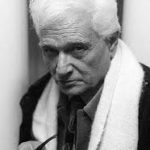 “…there are no drugs ‘in nature.’ There may be natural poisons and indeed naturally lethal poisons, but they are not as such ‘drugs.’ As with addiction, the concept of drugs supposes an instituted and an institutional definition: a history is required, and a culture, conventions, evaluations, norms…There is not in the case of drugs any objective, scientific, physical (physicalistie), or ‘naturalistic’ definition …the concept of drugs is not a scientific concept, but is rather instituted on the basis of moral or political evaluations: it carries in itself both norm and prohibition…it is a decree, a buzzword.”
“…there are no drugs ‘in nature.’ There may be natural poisons and indeed naturally lethal poisons, but they are not as such ‘drugs.’ As with addiction, the concept of drugs supposes an instituted and an institutional definition: a history is required, and a culture, conventions, evaluations, norms…There is not in the case of drugs any objective, scientific, physical (physicalistie), or ‘naturalistic’ definition …the concept of drugs is not a scientific concept, but is rather instituted on the basis of moral or political evaluations: it carries in itself both norm and prohibition…it is a decree, a buzzword.”
Quoting Peter Cohen:
“Whatever the origin of the U.N. Drug Treaties, and whatever the official rhetoric about their functions, the best way to look at them now is as religious texts… Books by Andrew Weil, Norman Zinberg, and Lester Grinspoon have been listed on drug warrior websites in the U.S. as ‘dangerous’ while ‘concerned’ citizens are encouraged to demand their removal from local libraries. The more detail in which the heresies are spelled out, the more the security of the Faith is established.”
Quoting Howard Becker:
“1. ‘Drug’ (as well as ‘narcotic,’ and similar terms…) does not denote a scientific or pharmacological category. It points, rather, to a category that reflects how a society has decided to treat a substance… 2. The category to which a substance is assigned affects how people who ingest that substance are treated and that, in turn, affects what the substance in question does to and for them. 3. Therefore, the solution to the problem is to redefine the phenomena involved. But this simple solution is not available because the power to define is concentrated among people [with] no incentive to take that easy step.”
Bruce Alexander:
 “The belief in drug-induced addiction has acquired the status of an obvious truth that requires no further testing. But the widespread acceptance of this belief is a better demonstration of the power of repetition than of the influence of empirical research, because the great bulk of empirical evidence runs against it. Belief in drug-induced addiction may have deep cultural roots as well, since it is a pharmacological version of the belief in ‘demon possession’ that has entranced western culture for centuries.”
“The belief in drug-induced addiction has acquired the status of an obvious truth that requires no further testing. But the widespread acceptance of this belief is a better demonstration of the power of repetition than of the influence of empirical research, because the great bulk of empirical evidence runs against it. Belief in drug-induced addiction may have deep cultural roots as well, since it is a pharmacological version of the belief in ‘demon possession’ that has entranced western culture for centuries.”
Helen Fisher
“Romantic love is an addiction. It’s a very powerfully wonderful addiction when things are going well and perfectly horrible when things are going poorly.”
Let’s believe that we know what a drug is. When you take a drug, there is no consistent outcome. Sure, the pharmacology may result in a similar biological effect. Opioids = analgesia. Amphetamines = energy. However, the perception, experience, meaning and impact are unpredictable. As Zinberg has shown, the drug effect shifts according to:
• Drug (dose, purity, method of use etc.),
• Set (beliefs about the drug, individual vulnerabilities and biology, drug expectation, the current state of mind etc.), and
• Setting (where we take a drug, who we are taking it with, who may be watching us, and even the legal status of the drug).
A person can reach a relatively stable outcome through consistent quality and learning. Still, the next person may have a very different outcome. With a different mind-set, in a different setting, everything can change.
How we define drugs has little to do with pharmacology or with potential harms – it has everything to do with the constructs around the drug. These can change with context. Colonel Peter Demitry described amphetamines as “the gold standard for ‘anti-fatigue.’ We know that fatigue in aviation kills … This is a life-and-death insurance policy that saves lives … This is a common, legal, ethical, moral and correct application” [quoted in War and drugs (Bergen-Cico 2015)]. Yet, in 2006, the United States Attorney General proclaimed methamphetamine to be “the most dangerous drug in America.” The drugs so described are almost identical, and they are currently prescribed to children to treat attention deficit disorder and obesity.
We need to stop thinking of drugs in terms of “harm.” If prohibition were about harm, free climbing would be illegal; paracetamol would require a prescription; alcohol would be banned, and LSD and psilocybin would be readily available. At the wrong dose, in the wrong combination with other drugs, most foods and drugs can cause harm under the wrong circumstances.
So what is this all about? What informs our constructs? As Cohen and others suggest, drug policy is more belief or religion than science. The only U.N. Convention to call something ‘evil’ is the Single Convention on Narcotic Drugs.  Addiction is described as an evil that must be combated at all costs. The term evil suggests what the real issues are: the mystical experience, the internal resolution of suffering, the feeling of power that challenges church and state. We can feel ‘fine’, but never ‘better’.
Addiction is described as an evil that must be combated at all costs. The term evil suggests what the real issues are: the mystical experience, the internal resolution of suffering, the feeling of power that challenges church and state. We can feel ‘fine’, but never ‘better’.
You cannot point out that, for some people, using an unregulated street drug that will cause certain eventual death may be useful in the moment. The priests of prohibition are horrified and appalled at such a sacrilegious  suggestion. It is unacceptable that a homeless person who is HIV and HEP C positive, is hungry and cold and has no prospects for the future, can inject heroin, using a blunt needle, through the crust of a septic abscess, and instantly find themselves lying simultaneously in the arms their (imagined) mother and lover.
suggestion. It is unacceptable that a homeless person who is HIV and HEP C positive, is hungry and cold and has no prospects for the future, can inject heroin, using a blunt needle, through the crust of a septic abscess, and instantly find themselves lying simultaneously in the arms their (imagined) mother and lover.
We applaud the extreme sportsmen but deplore the pursuit of dopamine through chemical means. The relentless pursuit of money is called determination; the relentless pursuit of comfort through drugs is called “addiction.” We let people suffer the misery of cluster headaches rather  than allow them to find relief in psilocybin. All because they may experience a non-state/church-sanctioned mystical experience. Governments let people suicide from pain, and let people who use unregulated heroin die from fentanyl poisoning while prescribing (the more dangerous) methadone instead. The prohibitionists would rather have someone die “clean” than live “dirty”.
than allow them to find relief in psilocybin. All because they may experience a non-state/church-sanctioned mystical experience. Governments let people suicide from pain, and let people who use unregulated heroin die from fentanyl poisoning while prescribing (the more dangerous) methadone instead. The prohibitionists would rather have someone die “clean” than live “dirty”.
Evolution has ensured that we pursue survival by any means: falling in love, searching for connection, attachment and belonging, and searching for mystical experiences that transcend our mortality. The mechanisms of determination, motivation and “addiction” are all inseparable parts of being human. They are framed as positives until they offend someone’s moral sensibilities or can be used to demonize a particular group.
Once the label of “addict” is used, the prophecy starts to fulfill itself. Most middle-class people who use drugs only develop a serious problem once they get caught using drugs. People keep drug use hidden. To be labelled a user of heroin is a shame few can tolerate. A sex worker becomes a junkie whore to  her colleagues when they discover she uses heroin. We know that if young people use cannabis, the best if not only predictor of future criminality, incarceration and violence is whether or not they get caught. The remedy is worse than the problem.
her colleagues when they discover she uses heroin. We know that if young people use cannabis, the best if not only predictor of future criminality, incarceration and violence is whether or not they get caught. The remedy is worse than the problem.
I admire Carl Hart, whom I consider a friend. He gained his place in academia through one of the few ways a kid from the Ghetto stands a chance of escaping the realities of life as an African American — military service. He became the first tenured African 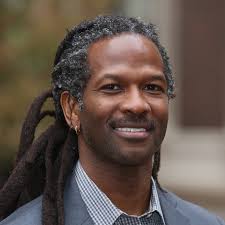 American Professor of Sciences at Columbia. His research and data turned him into an advocate for developing a better response to problematic drug use. Recently Carl Hart outed himself as someone who uses drugs. No doubt he will feel an immediate backlash. Ultimately, I believe people will pretend he never mentioned his drug use. It is easier to ignore the facts than to confront the accepted “truths” about drugs and addiction.
American Professor of Sciences at Columbia. His research and data turned him into an advocate for developing a better response to problematic drug use. Recently Carl Hart outed himself as someone who uses drugs. No doubt he will feel an immediate backlash. Ultimately, I believe people will pretend he never mentioned his drug use. It is easier to ignore the facts than to confront the accepted “truths” about drugs and addiction.
From grade one, they taught us: there is no such thing as controlled drug use. People who use drugs cannot sustain their work, meaningful relationships or financial commitments. We have to believe that drugs are dangerous, drugs are demons, drugs cause the breakdown of communities, and we must strive for a drug-free world. Later we realize it’s just not true. We should have a fit of righteous anger for being denied coca tea for a mild boost of energy, the joy of MDMA-assisted couples therapy, the mystical experience and the resolution of existential angst through psilocybin. We might also admit that our myths have caused great harm. I mourn the friends who have died inexcusable deaths.
Ultimately there are no good or bad drugs. One person’s poison is someone else’s salvation. In a rational world, there are plants and medicines and molecules that we can use with purpose, informed by knowledge, wisdom and experience, to find comfort, transcendence, temporary relief, joy, belonging and ourselves. In a rational world, there are no drugs at all.
And if there are no drugs at all, what the hell are we treating?
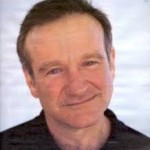 Now that the shock of it has passed, I’m left with a fog of sadness and anxiety, a sense of things being wrong in the world — more wrong than usual. Everyone loved Robin Williams. He gave so much of himself in his films and on-stage that we felt we knew him intimately. He was easy to connect with. He became part of our personal worlds.
Now that the shock of it has passed, I’m left with a fog of sadness and anxiety, a sense of things being wrong in the world — more wrong than usual. Everyone loved Robin Williams. He gave so much of himself in his films and on-stage that we felt we knew him intimately. He was easy to connect with. He became part of our personal worlds. After 20 years of abstinence, Robin started drinking again while shooting a film in Alaska in 2003. Here’s what he said about that moment in his life, quoted from the Guardian article:
After 20 years of abstinence, Robin started drinking again while shooting a film in Alaska in 2003. Here’s what he said about that moment in his life, quoted from the Guardian article: I think the fear, anxiety, the depression, the arggghh that became unbearable to Robin Williams is something we also know well. His death disturbs us so much, not only because we will miss him, not only because we feel for him, but because it reminds us of the brutality of that incessant uncertainty, that desolate isolation, which can turn into terror.
I think the fear, anxiety, the depression, the arggghh that became unbearable to Robin Williams is something we also know well. His death disturbs us so much, not only because we will miss him, not only because we feel for him, but because it reminds us of the brutality of that incessant uncertainty, that desolate isolation, which can turn into terror. has made us stronger, more open, more accepting.
has made us stronger, more open, more accepting. There are things we believe we know. Accepted truths that can’t be wrong. We see the evidence of these truths daily. These are the things we don’t need a citation for, the words we don’t list in the table of definitions, the questions we don’t even need to ask. But what if we have been fooled? What if everything we are sold to believe about drugs is, at some level, wrong?
There are things we believe we know. Accepted truths that can’t be wrong. We see the evidence of these truths daily. These are the things we don’t need a citation for, the words we don’t list in the table of definitions, the questions we don’t even need to ask. But what if we have been fooled? What if everything we are sold to believe about drugs is, at some level, wrong? “…there are no drugs ‘in nature.’ There may be natural poisons and indeed naturally lethal poisons, but they are not as such ‘drugs.’ As with addiction, the concept of drugs supposes an instituted and an institutional definition: a history is required, and a culture, conventions, evaluations, norms…There is not in the case of drugs any objective, scientific, physical (physicalistie), or ‘naturalistic’ definition …the concept of drugs is not a scientific concept, but is rather instituted on the basis of moral or political evaluations: it carries in itself both norm and prohibition…it is a decree, a buzzword.”
“…there are no drugs ‘in nature.’ There may be natural poisons and indeed naturally lethal poisons, but they are not as such ‘drugs.’ As with addiction, the concept of drugs supposes an instituted and an institutional definition: a history is required, and a culture, conventions, evaluations, norms…There is not in the case of drugs any objective, scientific, physical (physicalistie), or ‘naturalistic’ definition …the concept of drugs is not a scientific concept, but is rather instituted on the basis of moral or political evaluations: it carries in itself both norm and prohibition…it is a decree, a buzzword.” “The belief in drug-induced addiction has acquired the status of an obvious truth that requires no further testing. But the widespread acceptance of this belief is a better demonstration of the power of repetition than of the influence of empirical research, because the great bulk of empirical evidence runs against it. Belief in drug-induced addiction may have deep cultural roots as well, since it is a pharmacological version of the belief in ‘demon possession’ that has entranced western culture for centuries.”
“The belief in drug-induced addiction has acquired the status of an obvious truth that requires no further testing. But the widespread acceptance of this belief is a better demonstration of the power of repetition than of the influence of empirical research, because the great bulk of empirical evidence runs against it. Belief in drug-induced addiction may have deep cultural roots as well, since it is a pharmacological version of the belief in ‘demon possession’ that has entranced western culture for centuries.”  Addiction is described as an evil that must be combated at all costs. The term evil suggests what the real issues are: the mystical experience, the internal resolution of suffering, the feeling of power that challenges church and state. We can feel ‘fine’, but never ‘better’.
Addiction is described as an evil that must be combated at all costs. The term evil suggests what the real issues are: the mystical experience, the internal resolution of suffering, the feeling of power that challenges church and state. We can feel ‘fine’, but never ‘better’. suggestion. It is unacceptable that a homeless person who is HIV and HEP C positive, is hungry and cold and has no prospects for the future, can inject heroin, using a blunt needle, through the crust of a septic abscess, and instantly find themselves lying simultaneously in the arms their (imagined) mother and lover.
suggestion. It is unacceptable that a homeless person who is HIV and HEP C positive, is hungry and cold and has no prospects for the future, can inject heroin, using a blunt needle, through the crust of a septic abscess, and instantly find themselves lying simultaneously in the arms their (imagined) mother and lover. than allow them to find relief in psilocybin. All because they may experience a non-state/church-sanctioned mystical experience. Governments let people suicide from pain, and let people who use unregulated heroin die from fentanyl poisoning while prescribing (the more dangerous) methadone instead. The prohibitionists would rather have someone die “clean” than live “dirty”.
than allow them to find relief in psilocybin. All because they may experience a non-state/church-sanctioned mystical experience. Governments let people suicide from pain, and let people who use unregulated heroin die from fentanyl poisoning while prescribing (the more dangerous) methadone instead. The prohibitionists would rather have someone die “clean” than live “dirty”. her colleagues when they discover she uses heroin. We know that if young people use cannabis, the
her colleagues when they discover she uses heroin. We know that if young people use cannabis, the  American Professor of Sciences at Columbia. His research and data turned him into an advocate for developing a better response to problematic drug use. Recently
American Professor of Sciences at Columbia. His research and data turned him into an advocate for developing a better response to problematic drug use. Recently 




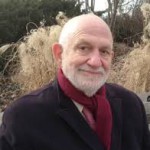



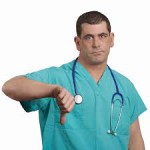
 Informed by unparalleled neuroscientific insight and written with his usual flare, Marc Lewis’s The Biology of Desire effectively refutes the medical view of addiction as a brain disease. A bracing and informative corrective to the muddle that now characterizes public and professional discourse on this topic.” —Gabor Maté, M.D., author of In The Realm of Hungry Ghosts: Close Encounters With Addiction
Informed by unparalleled neuroscientific insight and written with his usual flare, Marc Lewis’s The Biology of Desire effectively refutes the medical view of addiction as a brain disease. A bracing and informative corrective to the muddle that now characterizes public and professional discourse on this topic.” —Gabor Maté, M.D., author of In The Realm of Hungry Ghosts: Close Encounters With Addiction
Recent Comments